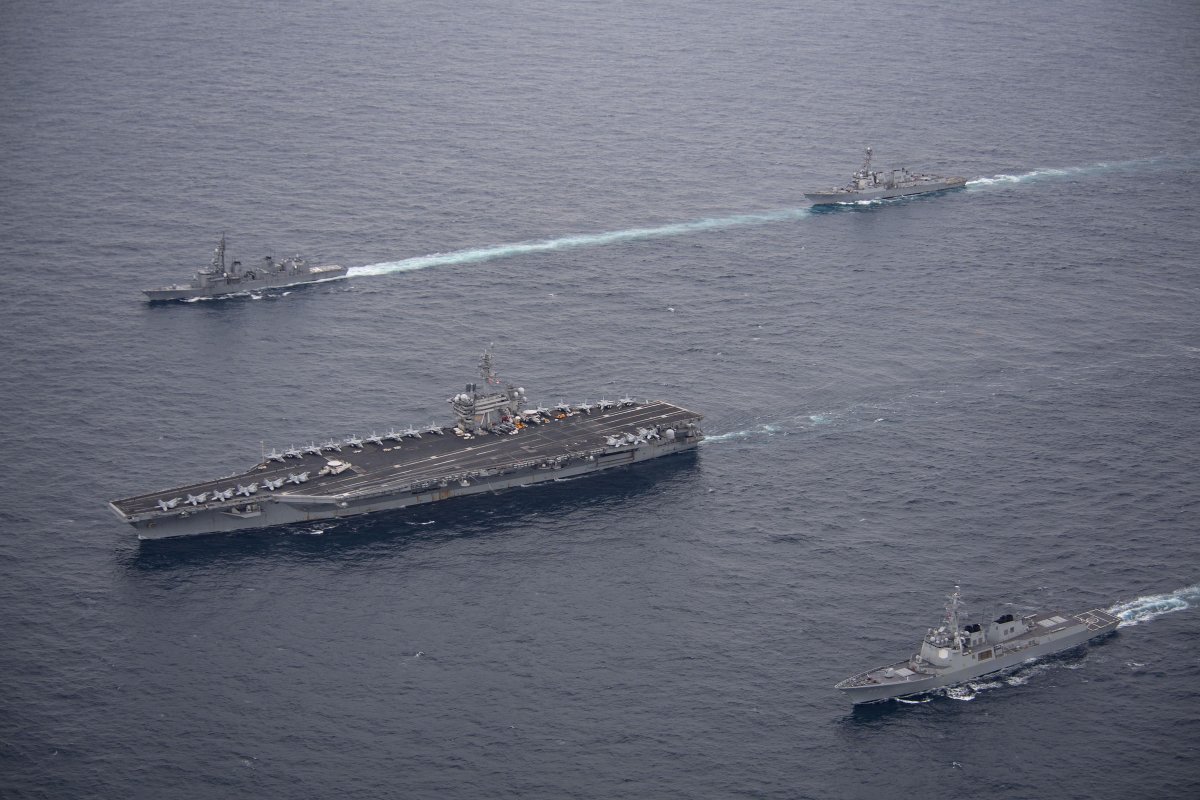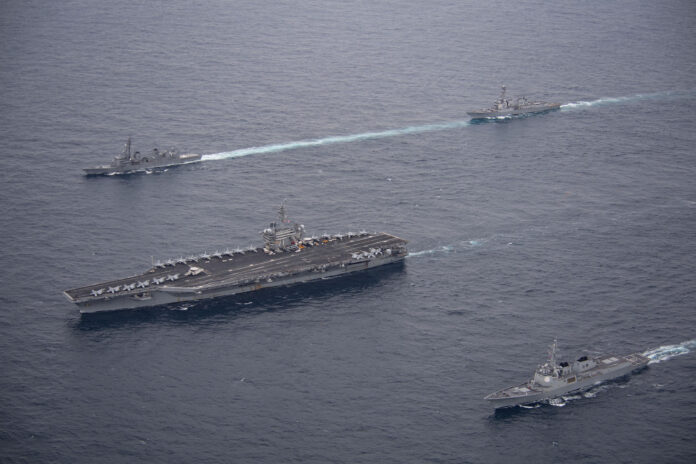South Korea and Japan, U.S. treaty allies that have joined hands to tackle shared national security threats in their neighborhood, this week reignited a decades-old territorial feud over a group of disputed islands.
South Korea’s Foreign Ministry on Tuesday summoned Taisuke Mibae, Japan’s deputy chief of mission at its embassy in Seoul, after the Japanese Foreign Ministry reasserted its claim to the Liancourt Rocks in its annual Diplomatic Bluebook, the Yonhap news agency said.
The dozens of tiny islets are located midway between Japan’s main island of Honshu and the Korean Peninsula in the Sea of Japan, also called the East Sea. They have been under South Korean government control since the 1950s, described in Tokyo’s Bluebook as an ongoing “illegal occupation.”
The Foreign Ministry in Seoul, which says it has “irrefutable territorial sovereignty” over the Dokdo islets, its easternmost territory, maintains a dedicated website that traces South Korean claims back more than a millennium.
The ministry said it “strongly protests” the claim to what Japan calls the Takeshima islets, and demanded its immediate withdrawal, read a brief statement on its website.
Jean Chung/Getty Images
The Foreign Ministry in Tokyo, meanwhile, says its ownership over the Liancourt Rocks is based on “historical facts” and international law.
“Japan will continue to seek the settlement of the dispute over territorial sovereignty over Takeshima on the basis of international law in a calm and peaceful manner,” its fact sheet says.
North Korea also claims the territory but is less assertive than its neighbors.
And despite the rhetorical back and forth between South Korea and Japan, there is rarely any action on the ground, a departure from China’s responses around the territory it claims in the East and South China seas.
Relations been Seoul and Tokyo have long been strained by the former’s wartime occupation by Imperial Japan and the latter’s atrocities in the same period.
Washington officially takes no position on sovereignty over the Liancourt Rocks and has urged the key treaty allies to manage their differences in order to address urgent military threats from North Korea and China.

Mass Communication Specialist 1st Class Tommy Gooley/U.S. Navy
In a sign of improving ties, South Korean and Japanese warships joined a U.S. Navy carrier strike group led by the USS Theodore Roosevelt for two days of drills in the East China Sea from April 11-12, their second such maneuvers since a first trilateral naval exercise in January.
Before that, in December, the three allies activated a real-time data-sharing mechanism to track North Korean missile tests, one of the many deliverables announced at last August’s summit at Camp David, where U.S. President Joe Biden hosted President Yoon Suk Yeol of South Korea and Prime Minister Fumio Kishida of Japan for a historic gathering.
Japan, while referencing the Liancourt Rocks dispute, acknowledged the strategic significance of good relations with South Korea in its diplomatic report, describing it as “a partner” in common issues—language not seen in over a decade.
“In light of the challenging security environment in the Indo-Pacific, close cooperation between the two countries is needed now more than ever,” it said, promising “a new era of partnership and cooperation.”
The U.S. State Department did not immediately respond to a written request for comment.
Uncommon Knowledge
Newsweek is committed to challenging conventional wisdom and finding connections in the search for common ground.
Newsweek is committed to challenging conventional wisdom and finding connections in the search for common ground.


